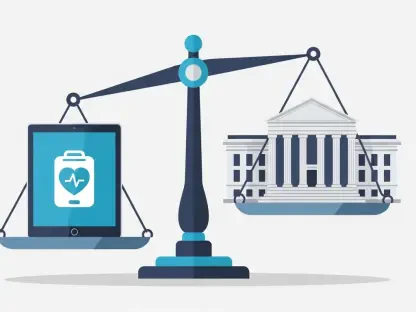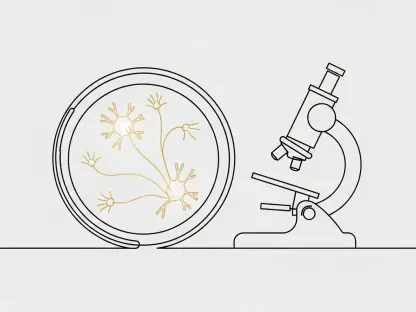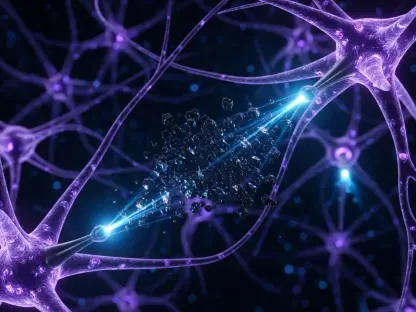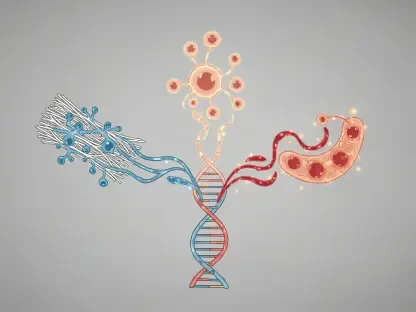The transformative impact of technology on synthetic biology has become a focal point in scientific discourse, driving rapid advancements in DNA and mRNA synthesis. The central theme revolves around strategies to bypass traditional barriers to expedite scientific progress, which is crucial in the era of precision medicine and targeted therapies. The centerpiece of synthetic biology innovations lies in synthetic vaccines and pharmaceuticals with minimized side effects, heavily reliant on the ability to produce vast quantities of DNA swiftly during research and development phases. Historically, reliance on external vendors for DNA synthesis introduced significant bottlenecks, often delaying progress and inflating costs. However, technological developments are paving the way for revolutionary changes in this field.
Breaking Traditional Barriers
Emerging technologies are radically altering the landscape of synthetic biology by enabling the in-house synthesis of DNA and mRNA. This pivotal shift drastically reduces synthesis timelines, transforming a process that once took over 14 days into something achievable in less than a day. Furthermore, these new techniques offer improvements in quality and automation. By retaining control over their synthesis processes, researchers can facilitate rapid iterations and empower AI models in drug discovery. AI tools are gaining traction across industries for molecule design, providing competitive advantages and strengthening the optimization of metabolic pathways by predicting genetic modifications affecting cellular functions.
The role of AI in synthetic biology is profound, offering precise, data-driven insights that enhance the refinement of experimentation and expedite therapeutic discoveries. These innovations not only advance vaccine research and drug development but extend to antibody engineering. Moreover, they have the potential to revolutionize sectors like engineered meat substitutes and sustainable agriculture. By overcoming existing workflow bottlenecks, these technologies enhance the capability to explore pioneering solutions with impacts on global health, unlocking new possibilities for scientific endeavors that were previously constrained by technological limitations.
AI’s Impact on Experimental Efficiency
The integration of artificial intelligence into synthetic biology serves as a catalyst for refining experimental methods and boosting efficiency in the therapeutic discovery process. AI algorithms can now interpret complex datasets, providing researchers with valuable insights that drive more targeted and efficacious experiments. By accurately predicting outcomes and analyzing vast biological data networks, AI reshapes the trajectory of research methodologies and propels the synthetic biology field towards previously unattainable milestones. Such proficiency allows for quicker identification of promising avenues in vaccine development and drug synthesis, ultimately reducing the time from conception to practical application.
Additionally, AI’s enhancement of antibody engineering illustrates its capacity to offer groundbreaking solutions that could redefine industries beyond healthcare. Potential applications include optimizing the production of engineered meat substitutes and pioneering advances in sustainable agricultural practices. Such innovations arise from AI’s ability to simulate biological interactions and predict cellular responses, paving the way for a comprehensive understanding of genetic engineering’s real-world applications. By contributing significantly to synthetic biology’s progress, AI sets a precedent for future technological breakthroughs that could profoundly alter conventional approaches to human health and environmental sustainability.
Paving the Way for Future Innovations
Emerging technologies are significantly transforming synthetic biology by allowing the in-house creation of DNA and mRNA. This notable shift drastically cuts synthesis time from over two weeks to less than a day. The new methods enhance quality and automation, letting researchers manage synthesis processes to enable swift iterations and integrate AI models in drug discovery. AI tools are becoming more influential in designing molecules across various industries, providing competitive advantages and optimizing pathways by predicting genetic modifications impacting cellular functions.
AI’s role in synthetic biology is crucial, offering precise, data-driven insights to refine experiments and fast-track therapeutic discoveries. These advancements boost vaccine research, drug development, and antibody engineering. Additionally, they have the potential to revolutionize fields like engineered meat substitutes and sustainable agriculture. By overcoming workflow bottlenecks, these technologies enhance the exploration of innovative solutions impacting global health, unleashing new scientific possibilities previously limited by tech constraints.









